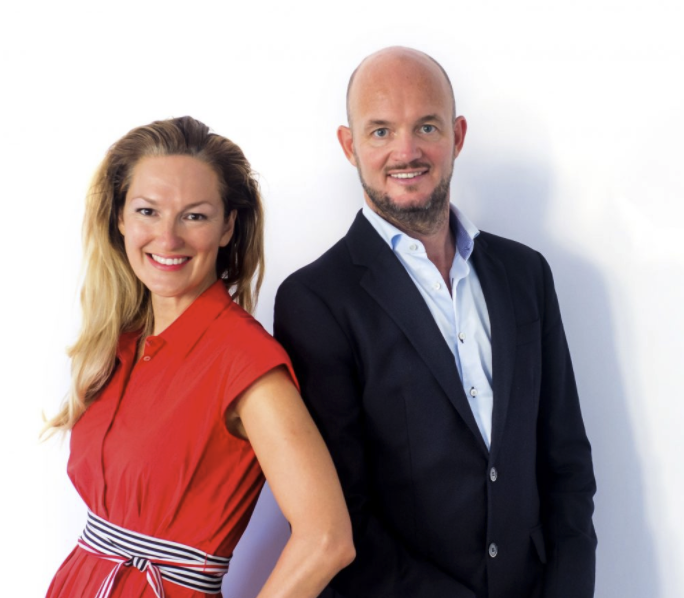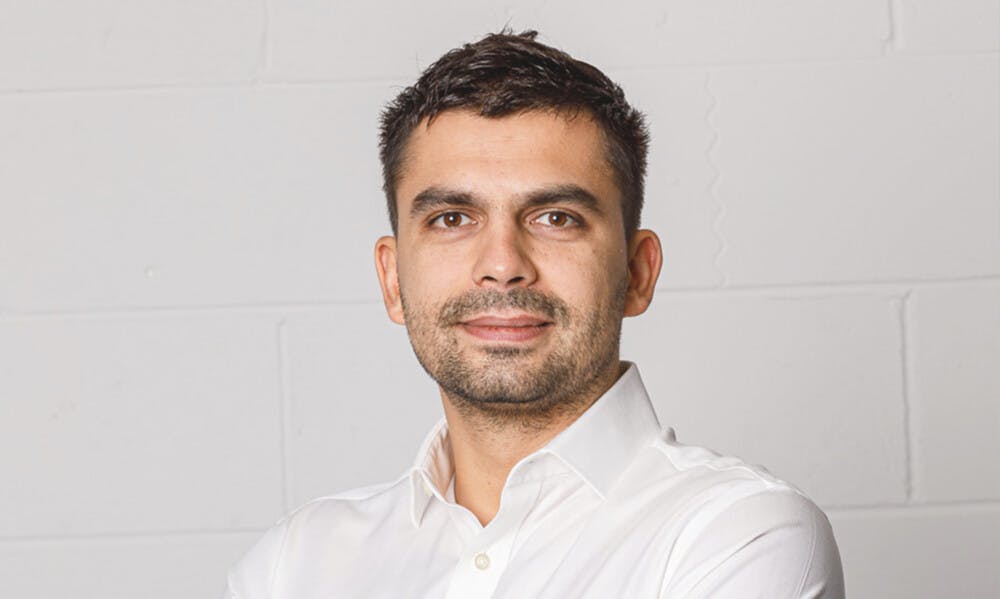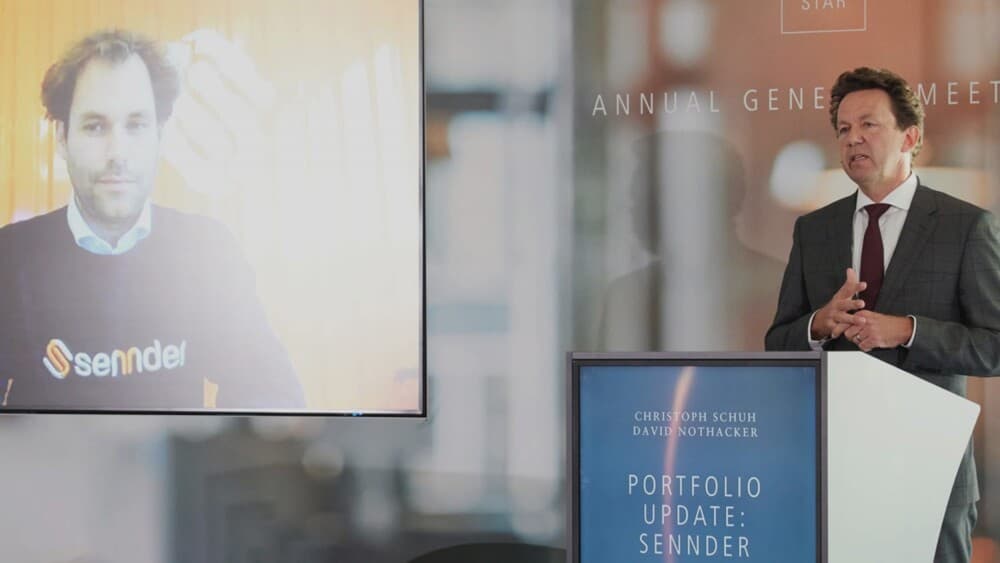Founders' Stories|
Cleaning up chaotic property data to power up the industry
In much of the world, the real estate market can best be described as chaotic, something which we discovered in 2015 when looking for a property in the popular second home location of Mallorca, Balearic Islands. In Spain, a destination much-loved amongst visitors from countries such as Germany and Britain, the property market works differently from most of Northern Europe, with no transparency in its operations. Having previously been involved in two successful start-ups, we decided to see if we could change it for the better.
Mila Sukhareva, Co-founder & CEO, CasafariNils Henning, Co-founder & CEO, Casafari

When people look for property in the UK, for example, they often start with marketplaces such as Rightmove or Zoopla, websites that display property listings and pro- vide lots of information about each listing – the neighbourhood, infrastructure, price and other detailed data. In most cases, the sale will be handled exclusively by one agency which is paid commission for completing the transaction; if there is more than one agency involved, they will compete for the commission, which may indicate that the property is not selling at the advertised price.
When looking for real estate in Spain, however, there might be more than 20 agencies competing to sell a property, creating duplicated listings in several marketplaces. The same property may be shown multiple times with several agencies, advertised with different prices, locations, descriptions and other key details. Also, not all available properties are listed on any of the dozen local marketplaces – a big part stays on agency websites or is only advertised abroad. This makes it very difficult for buyers to get an overview of the market and understand what is available and for what price.
Our two previous start-ups were Bigpoint, a video games developer in Germany which was sold after six years for about USD650 million, and Kreditech, which revolutionised credit-scoring for countries without access to banking – we sold our stake in 2014. During this time both of us had also become active business angels, investing in other start-ups and working with their founders.
When we left Kreditech, we felt it was time to take a sabbatical, which involved a long holiday in India, buying a boat and learning how to sail it. On our return, we decided to invest in Spanish yield property, which was when we saw the opportunity to bring transparency to chaotic real estate markets. As a result, CASAFARI was born in Spain in 2016 and commercially launched in Portugal in 2018, aiming to build the cleanest and most complete real estate database in the world with applications to serve all real estate market segments and empower new Proptech companies.
The property industry is one of the last dinosaurs working pen-and-paper style with a minimum of technology
In the beginning, we didn’t know whether to focus on B2C or B2B operations. We looked at how Skyscanner monitored flights and Trivago aggregated hotels, and decided that we wanted to create something to bring that same transparency to the real estate market. This was an industry that had worked for the last 25 years without innovation – one of the last dinosaurs working pen-and-paper style with minimal technology. We felt we could shape the industry and power it up, not to disrupt it, but to improve it – which is exactly the strategy that has proved to be a success.
Within six months after the launch in Portugal, we had spoken to every major real estate brand and found that agencies, brokers, developers and investors were open to our plans and wanted to have access to our ‘clean’ real estate data. We demonstrated how CASAFARI was bringing transparency and efficiency to the real estate market, saving time for real estate professionals to source the best opportunities and close deals significantly faster. In an industry where professionals network and change companies fairly often, word of mouth was also an important factor, as they would talk about interesting innovations that they had come across and spread the word about us.
Our message to agents is that they can take control of their portfolios. CASAFARI provides a real-time list of all the agents in a given area selling particular types of property. These professionals can also get an overview of their markets according to the price per square metre, the number of unique properties in each price range, and changes in their portfolios and market shares. We reduce agents’ screen time to ten minutes in the morning, rather than wasting days on research when they could be working with clients and closing deals.
The data we provide can also help property developers select areas that are the most promising for development in cities, towns and rural locations. Developers with large plots of land or buildings to redesign can be advised on what sort of homes will be most profitable to build, which property characteristics such as under- floor heating, elevator and garage will affect the price, and what the demand is in a hyperlocal context. Previously, such decisions could only be made on gut feelings or on the perhaps erroneous belief that they know the market.

Nils takes care of the commercial and legal aspects of CASAFARI, and so he is responsible for our legal compliance in building a system that is innovative but does not violate existing laws on issues such as copyright. He also heads up the company as an organisation, running the business teams, driving the business strategy and handling investor relations. Mila builds the product, from mock-ups and designs to building up teams for development and data projects in data collection, quality monitoring and machine learning for deduplication and outlier detection.
Her team has developed proprietary AI technology and extensive data operations that bring transparency to the market by indexing, cleaning and deduplicating over 15 million listings from more than 9,000 sources daily. This technology aggregates different listings of the same properties to create the most complete database of unique properties in Europe and provide real estate professionals and institutional investors with hyperlocal data in real time. Creating the CASAFARI database required very sophisticated solutions to technological issues, and it was our own money from previous exits that we used to get the company started. By 2018 we were operating with offices in Portugal and Ukraine, and the market was starting to talk about Proptech and innovation in a way it had never done before. We looked for support to help us build on this success and settled on Lakestar.
In 2019 we plan to increase our business by roughly 400 percent
So far on the commercial side, we now cover Iberia, with more than 5,000 real estate agents currently enjoying paid access to CASAFARI. We already have data for parts of France, Italy, Austria and Switzerland, and in 2019 we plan to increase our business by roughly 400 per cent. In the longer term, there is potential to go global, as property market chaos can be found in regions as far-flung as Latin America and Asia.
Earlier attempts to do what we are doing have failed due to the complexity of the technology required. We were able to use the experience of our previous start-ups, manually dealing with huge data sets in order to improve the data quality and then automating those tasks to create a scalable product.
Competitors have found it hard to believe that we have done this, but we never gave up and were encouraged by Lakestar who immediately recognised the value of our vision and shaped it further so that it could be scaled up globally. Having worked hard to see what could be automated and make it happen, we are far ahead of any potential competitors and ready to accelerate our growth.
This article is part of the Lakestar Briefing, a periodical publication about Lakestar's portfolio companies and our network of inspiring minds we like to work with.
Click here to subscribe










